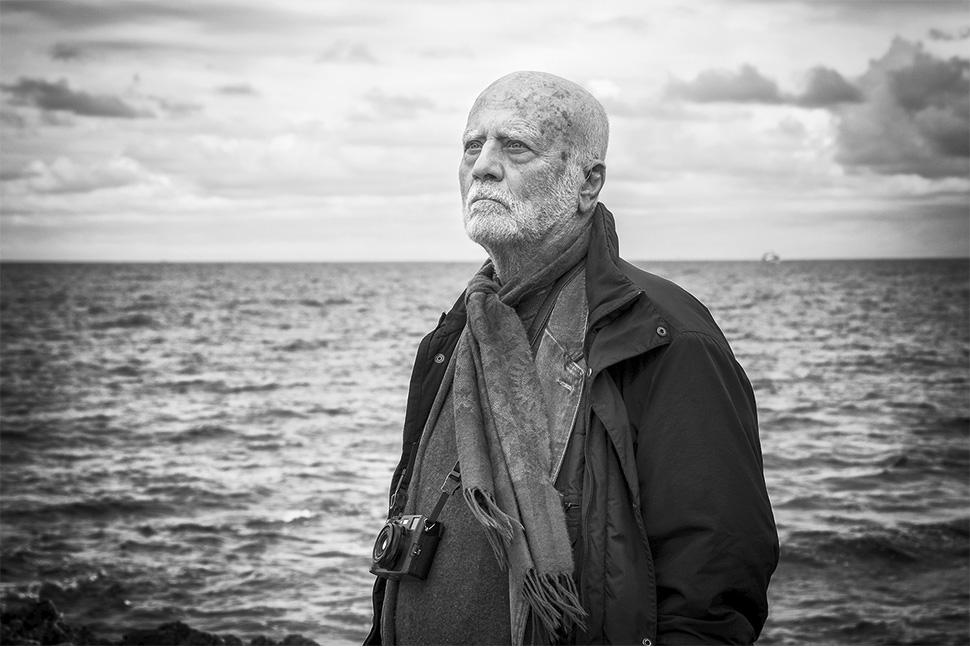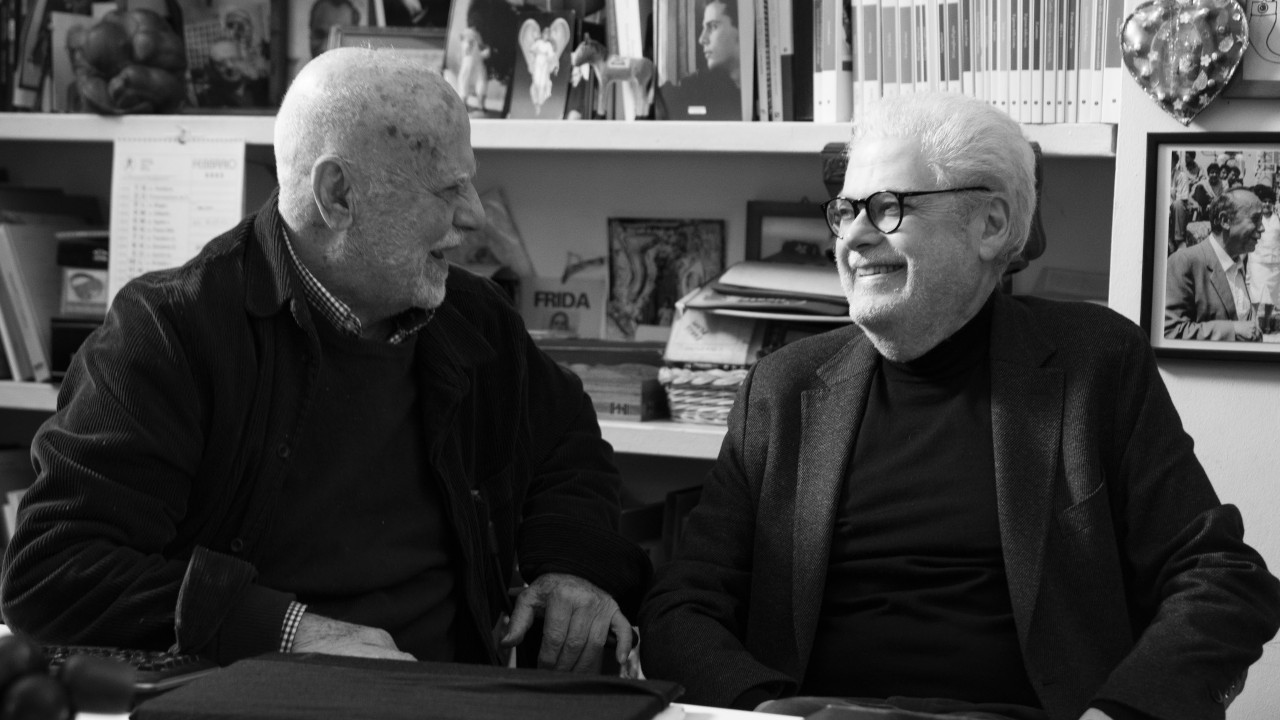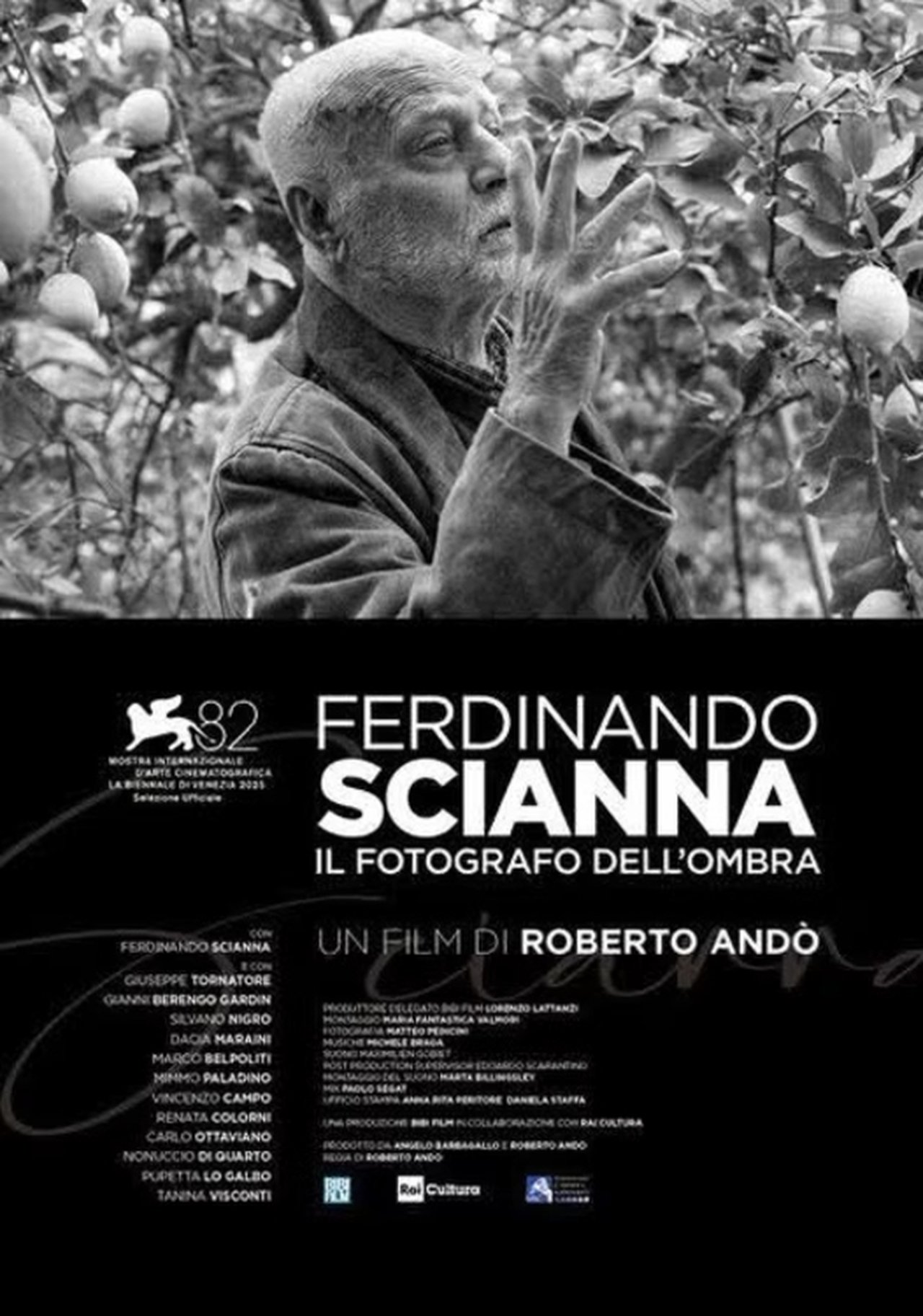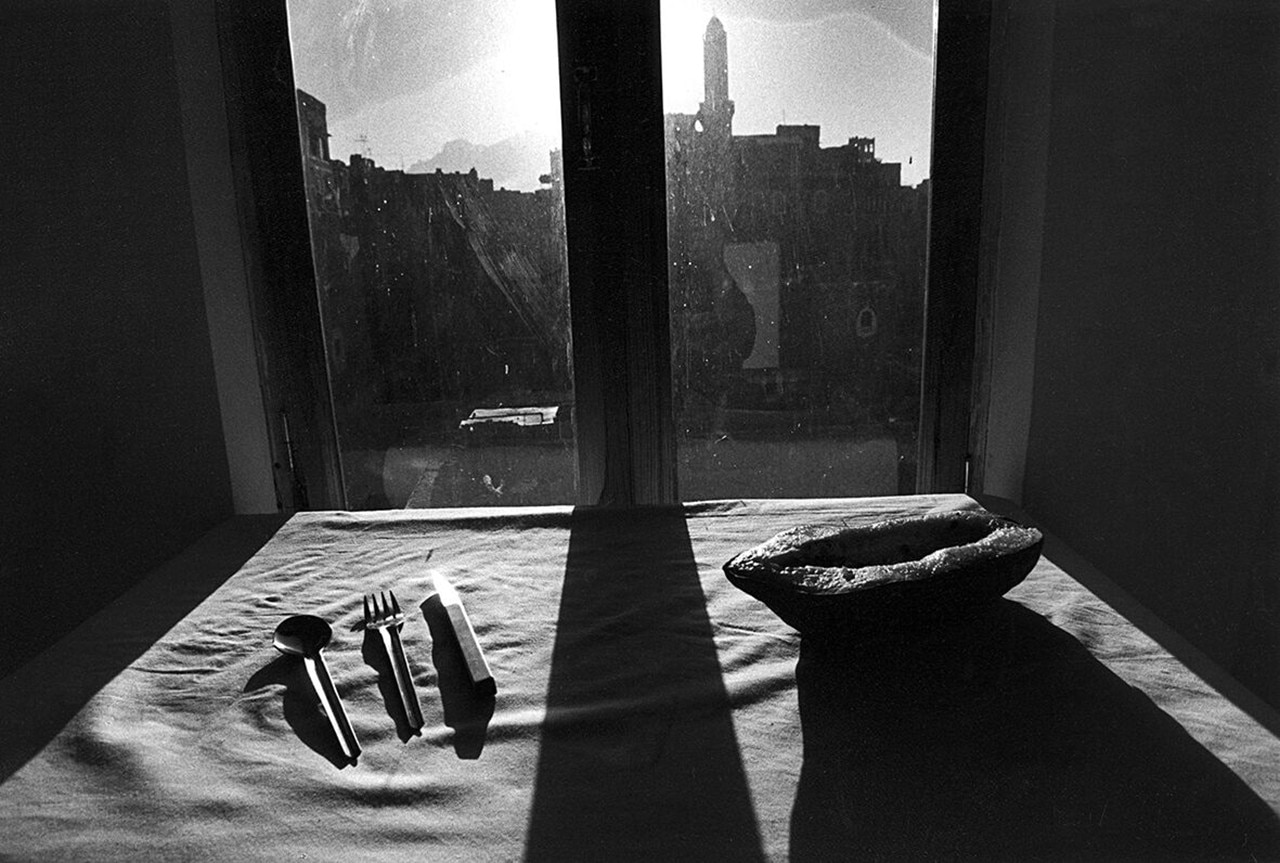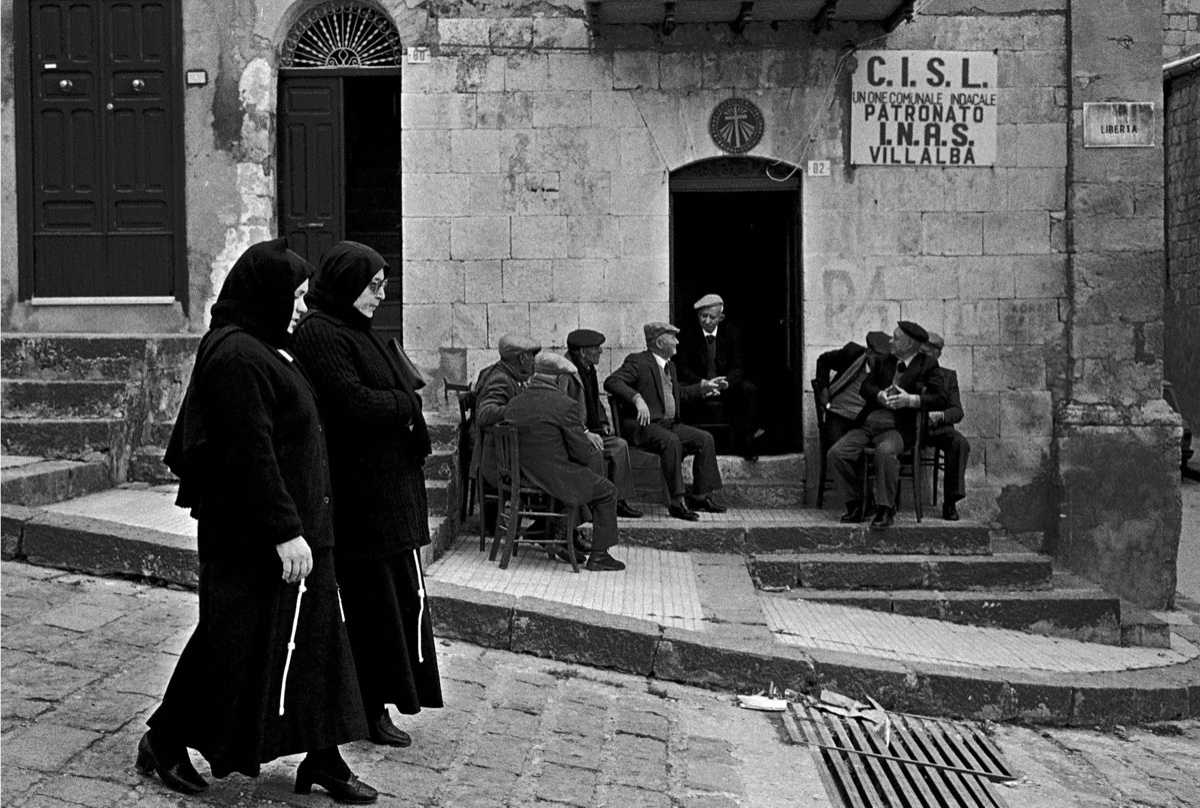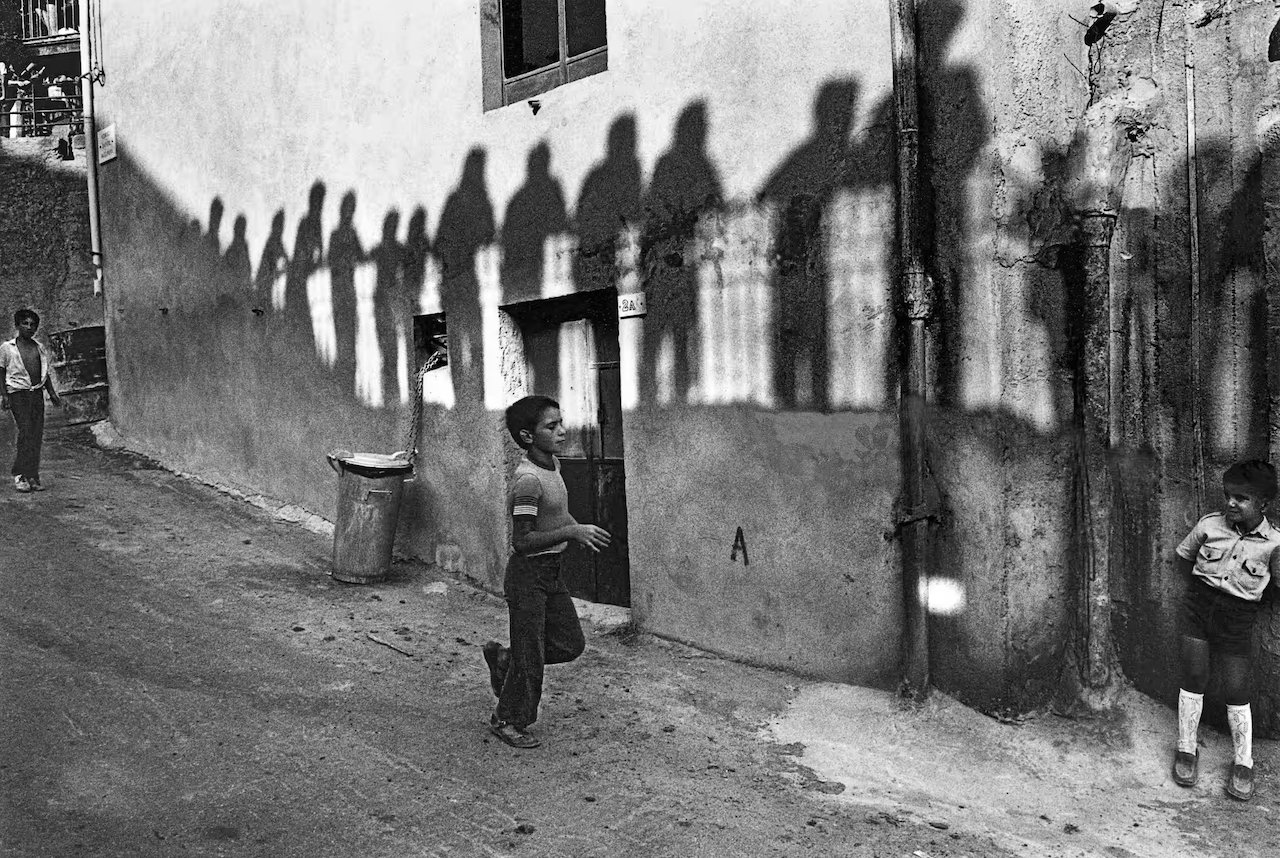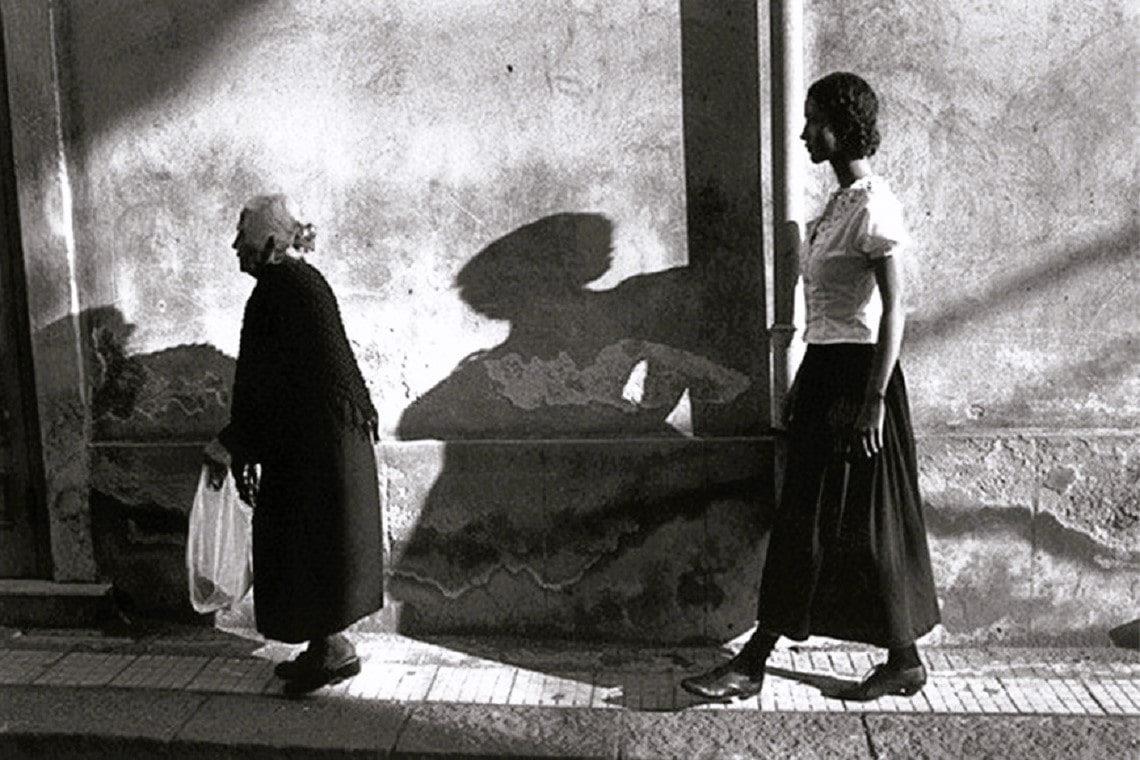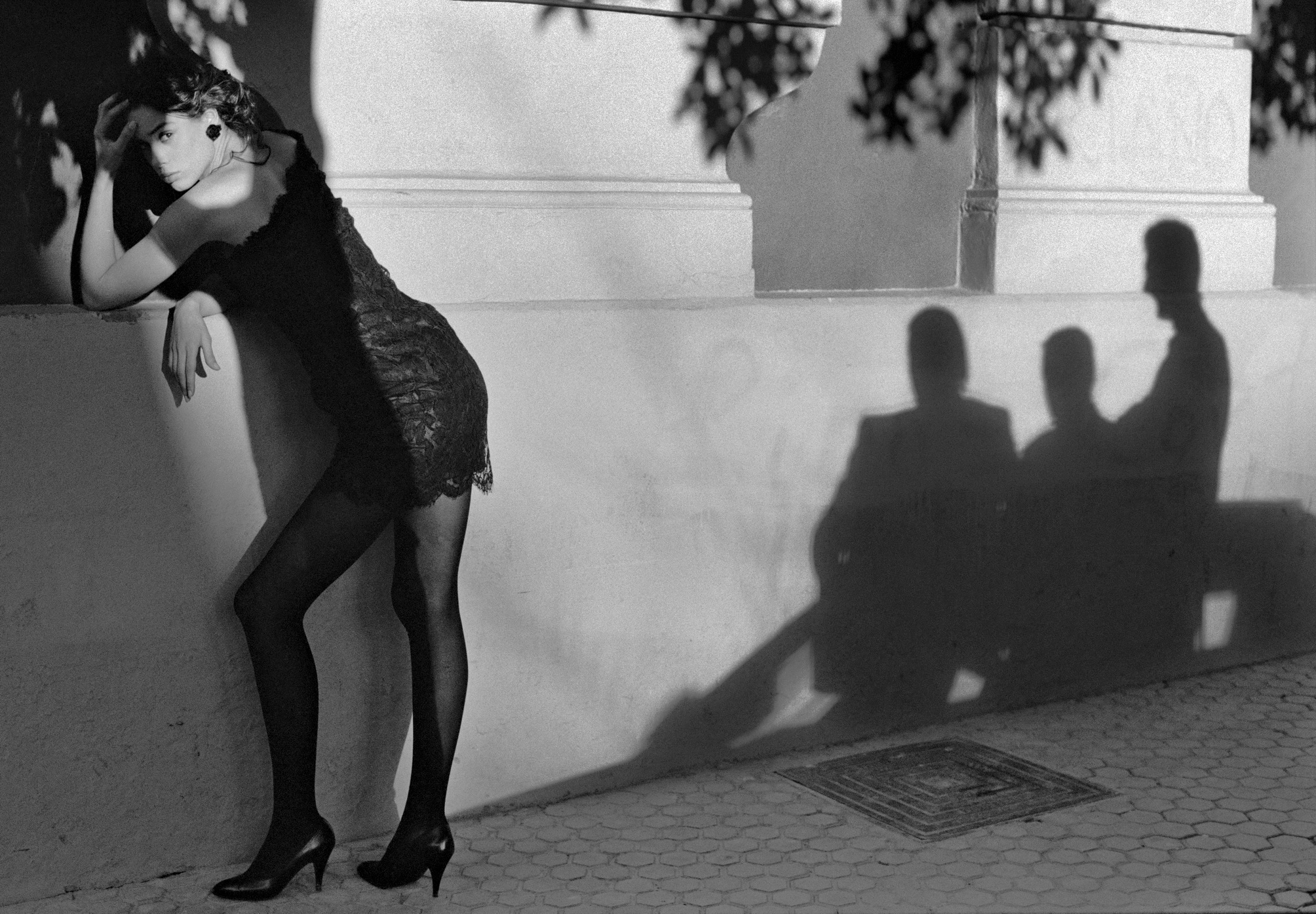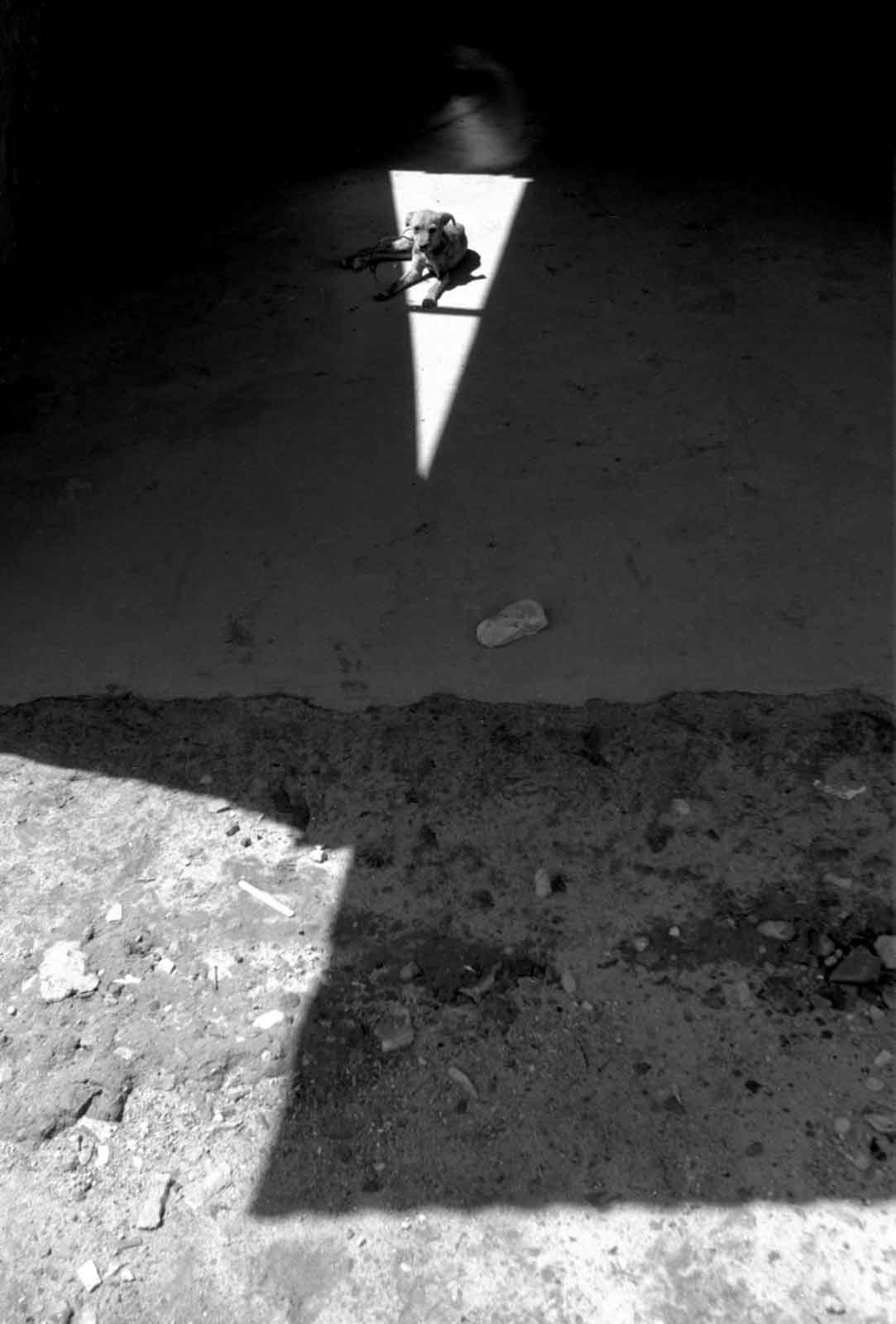Ferdinando Scianna: The Photographer of Shadow
Directed by Roberto Andò and produced by Bibi Film in collaboration with Rai Cultura, Ferdinando Scianna – The Photographer of Shadow (86’, Italy) is presented Out of Competition at the Biennale Cinema 2025 | 82nd Venice International Film Festival.
Now in his eighties yet still brimming with vitality, Ferdinando Scianna invites us into a world shaped by unforgettable encounters with the giants of twentieth-century culture. His life unfolds as a tapestry of friendships, reflections, and questions about the meaning of photography and the enduring power of images in a time when reality often seems on the verge of disappearing. For Scianna, photography is not an art form but something else entirely — an irreplaceable tool for probing reality, a fragile yet essential act of revelation when images increasingly risk concealing more than they reveal.
The film follows him back to Bagheria, where he seeks out old friends first photographed in his youth; to Palermo, in search of traces of Leonardo Sciascia; and to Milan, where he retraces the thread of his life with the eloquence of a born storyteller. Irresistible and captivating, Scianna conveys why photography is not only a practice but also an adventure and a destiny.
For director Roberto Andò, Sicily was as a child an inscrutable land of contradictions — too much light, too much shadow. He found his bearings in the words of Sicilian writers such as Sciascia, and in the photographs of artists like Scianna. This film is an homage to that formative influence: a celebration of a photographer who unites eye, heart, and mind, and who has narrated photography’s profound tensions with rare intensity, through both images and words.
Scianna belongs to that lineage of photographer-storytellers whose work reads like a great novel — populated by faces, places, and voices that leap out of history. A novel that celebrates dignity and contradiction. A novel built on light, born from shadow.
About the Authors
Ferdinando Scianna was born in Bagheria, Sicily, in 1943. He studied literature, philosophy, and art history at the University of Palermo, where he also began photographing in the early 1960s. His first images focused on Sicilian traditions and communities, culminating in the landmark book Feste Religiose in Sicilia (Religious Festivals in Sicily), published in 1965 with an essay by Leonardo Sciascia. The book earned him the prestigious Prix Nadar in 1966 and marked the beginning of a lifelong dialogue with some of the most important writers of his time.
In 1967, Scianna joined the magazine L’Europeo as a photographer before expanding into journalism. He contributed political commentary to Le Monde Diplomatique and wrote on literature and photography for La Quinzaine Littéraire. His career took a decisive turn in the 1970s when he met Henri Cartier-Bresson, who invited him to join Magnum Photos. Scianna became a full member in 1989 and continues to collaborate with the agency today.
The 1980s brought international recognition when Dolce & Gabbana chose him to shoot their first advertising campaign. By the end of the decade, he had consolidated his reputation with the publication of Le forme del caos (The Form of Chaos, 1989), a major retrospective volume.
Over the following decades, Scianna continued to expand his photographic universe. He published a celebrated series of portraits of Jorge Luis Borges in 1999 and presented Niños del Mundo, an exhibition devoted to children across the globe, in the same year. His bibliography now includes more than eighty books, ranging from Viaggio a Lourdes (Journey to Lourdes, 1995) to Dormire forse sognare (To Sleep, Perchance to Dream, 1997) and Viaggio racconto memoria (Travels, Tales, Memories, 2018). In Quelli di Bagheria (Those of Bagheria, 2002), he returned to his hometown through words and images, reconstructing the atmosphere of his youth and the community that shaped him.
Roberto Andò was born in Palermo and trained in literature and cinema. Early in his career, he apprenticed with masters such as Francesco Rosi, Federico Fellini, Michael Cimino, and Francis Ford Coppola.
He made his directorial debut in theater in 1986 with La foresta-radice-labirinto, based on an unpublished text by Italo Calvino. Soon after, he turned to documentary filmmaking, presenting works such as Memory-Loss (1994) and Per Webern – Vivere è difendere una forma (1996) at the Venice Film Festival.
His first feature, Diario senza date (1995), set in Palermo, blended documentary and fiction. In 1999 he released Il manoscritto del Principe, centered on the final years of Giuseppe Tomasi di Lampedusa, which earned him critical acclaim and several major awards. He later directed Sotto falso nome (2004), presented at Cannes, and Viaggio segreto (2006), based on Josephine Hart’s novel.
Alongside cinema, Andò has pursued an extensive career in theater and opera direction, including collaborations with Harold Pinter and Moni Ovadia. His literary career began with Diario senza date (2008) and continued with Il trono vuoto (2012), winner of the Campiello Prize, which he adapted into the film Viva la libertà (2013). The film received the David di Donatello, Nastro d’Argento, and Ciak d’Oro for Best Screenplay.
He later directed Una storia senza nome (2018), La stranezza (2022), starring Toni Servillo and Ficarra e Picone, and the TV miniseries Solo per passione – Letizia Battaglia fotografa. Since 2014, he has also served as head of the Documentary Department at the Centro Sperimentale di Cinematografia in Rome.
More info:

